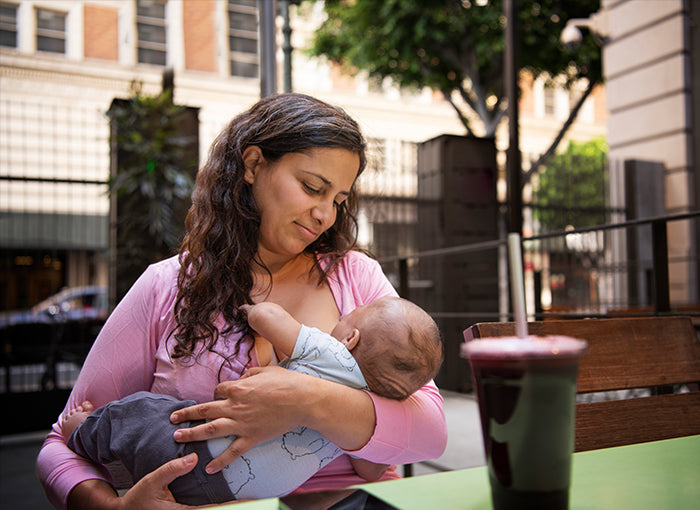Importance of Breastfeeding
Posted by GWD KIDS

Importance of Breastfeeding During Your Baby's Early Years
Colostrum - your first milk, golden in colour, skin-to-skin bonding with your newborn ~ here's all you need to know on why breastfeeding is essential for each one of you!
Did You Know? Newborn babies should breastfeed 8–12 times per day for about the first month. Breast milk is easily digested, so newborns are hungry often. Frequent feedings helps stimulate your milk production during the first few weeks!
✨ Importance of breastfeeding your little one during their initial years of growth
Being a new mother can be overwhelming and confusing at the same time. In order for your little one to get the best nutrition possible, it is ideal to start breastfeeding your newborn immediately.
Breastfeeding your baby is the strongest way to create a bond between the two of you, and over and above, is the best source of sharing nutrition and antibodies to your baby. Not only is breastfeeding beneficial to your baby, but when done right and for the right duration, it also can reduce the mother’s risk of breast and ovarian cancer, type 2 diabetes, and high blood pressure according to sources.
✨ The Do's of Breastfeeding your Baby
#1 Practice patience. Both, you & your little one are learning to get comfortable with a new habit which can take some time to fall in place.
#2 Take care of your diet. Include plenty of leafy green vegetables & protein for you to have the adequate amounts of nutrition. Make sure you do not eat anything that causes gas or constipation in your baby’s stomach as what you eat may affect your baby’s digestion.
#3 Express and freeze breast milk if you need to go somewhere without your baby. This ensures your baby always has access to nourishing, fresh breast milk, even when you're away.
#4 Drink plenty of water, a juice or any hydrating fluid. It is believed that drinking a glass of water or juice right before breastfeeding helps increase your milk flow, and helps keep it strong.
#5 Ensure cleanliness and sanitisation at all times. Your little one's immune system is weak and hence, it is advisable to wash your hands and wipe your breast with a damp cloth before and after each breast-feeding session.
#6 Do nurse when your baby is hungry, regardless of the time or environment you're in. Avoiding or neglecting your baby's timelines can adversely affect both, your milk supply as well as your baby's ability to grow at a healthy rate.
#7 Do continue to breastfeed your baby for at least the first six months, along with introducing appropriate complementary foods for 1 year or longer.
✨ The Don'ts of Breastfeeding your Baby
#1 Don't quit breastfeeding if you end up falling sick. In case of medications, it is best to still keep pumping your breast milk, even if you need to discard it. This way, your breast would still be used to pumping and producing milk.
#2 Don't breastfeed when you’re feeling angry or depressed. Your mood plays an important role which can be sensed by your baby and impact on your milk flow.
#3 Do not give up on breastfeeding your newborn no matter how hard you find it. Give your baby and yourself time to understand each other.


